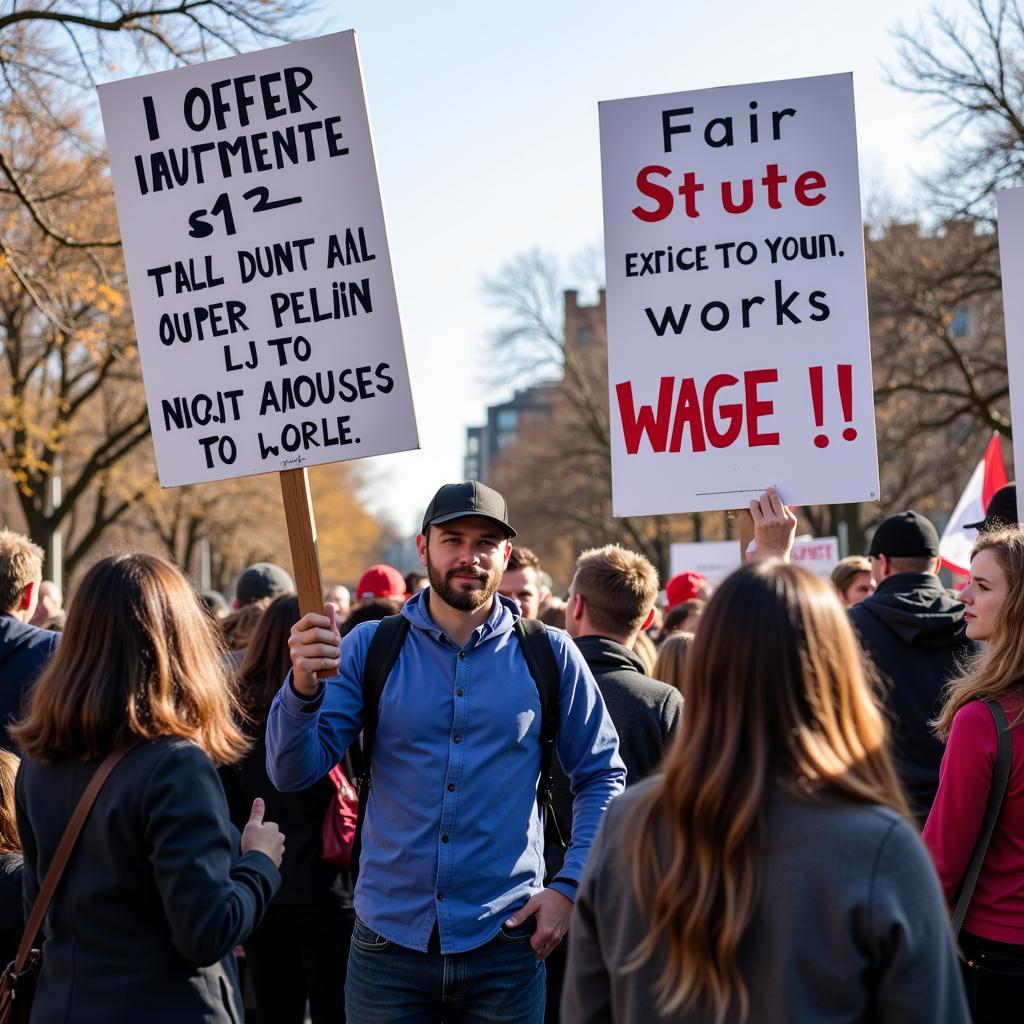The term “Equitable Society” often sparks debate and discussion, but at its core, it represents a vision of a world where fairness and justice prevail. It’s a world where everyone, regardless of their background, has equal opportunities to thrive and reach their full potential. This involves dismantling systemic barriers, promoting inclusivity, and ensuring that resources and power are distributed fairly.
Understanding the Pillars of an Equitable Society
An equitable society doesn’t magically appear; it’s built on a foundation of key principles that guide its development and ensure its sustainability. These pillars are interconnected, and neglecting any one of them weakens the entire structure.
1. Equal Access to Opportunities
At the heart of an equitable society lies the principle of equal access to opportunities. This means creating a level playing field in areas like education, healthcare, employment, and political participation. It involves identifying and addressing the historical and systemic disadvantages that prevent certain groups from accessing the same opportunities as others.
For instance, in an equitable society, a child’s zip code wouldn’t determine the quality of their education. Everyone would have access to quality healthcare, regardless of their income level. And job opportunities would be based on merit, not biased by factors like race, gender, or religion.
2. Economic Justice: Bridging the Gap
Economic inequality is a major obstacle to achieving an equitable society. This pillar focuses on reducing the wealth gap and ensuring everyone has a fair chance at economic security. It involves implementing policies that promote fair wages, access to affordable housing, and opportunities for wealth creation for all members of society.
 Fair Wage Protest
Fair Wage Protest
Imagine a society where everyone earns a living wage that allows them to afford basic necessities and live with dignity. A society where access to affordable housing ensures that everyone has a safe and stable place to live. This is the essence of economic justice within an equitable society.
3. Social Inclusion and Equity: Embracing Diversity
An equitable society celebrates diversity and promotes inclusion in all aspects of life. This means creating a welcoming and supportive environment for people of all backgrounds, regardless of their race, ethnicity, gender identity, sexual orientation, religion, or disability status.
This involves actively dismantling discriminatory practices, challenging prejudice and stereotypes, and fostering understanding and respect among different communities.
4. Justice and Fairness: Upholding Rights and Accountability
A cornerstone of any equitable society is a strong justice system that upholds the rights of all individuals and holds institutions and individuals accountable for their actions. This includes ensuring equal protection under the law, access to legal representation, and fair and impartial treatment within the justice system.
Moreover, it means addressing systemic biases within the justice system itself, such as racial profiling and mass incarceration, to create a truly just and equitable society.
Why Striving for an Equitable Society Matters
Building an equitable society is not just a matter of social justice; it’s essential for the well-being and progress of humanity as a whole. When societies are more equitable, they tend to be:
- More prosperous: Reducing inequality can lead to stronger economic growth and increased prosperity for everyone.
- Healthier: Equitable access to healthcare and social services leads to a healthier population overall.
- More peaceful: Societies with less inequality tend to be more peaceful and stable.
- More sustainable: Addressing social and economic disparities is crucial for promoting environmental sustainability.
The Path Forward: Building a More Equitable Future
Creating a truly equitable society is an ongoing process that requires sustained effort, collaboration, and a willingness to challenge the status quo. It involves:
- Education and awareness: Promoting education and awareness about the importance of equity and the impact of inequality.
- Policy changes: Implementing policies that promote equal opportunities, economic justice, and social inclusion.
- Community engagement: Encouraging community engagement and participation in decision-making processes.
- Individual action: Recognizing that each individual has a role to play in building a more equitable society.
Building an equitable society is a journey, not a destination. It’s about continuously striving to create a world where everyone has the opportunity to thrive, contribute, and live a fulfilling life.
FAQs About Equitable Societies
1. What is the difference between equality and equity?
Equality often refers to treating everyone the same, while equity involves providing individuals with what they need to succeed, recognizing that not everyone starts from the same place.
2. Is an equitable society a utopian dream?
While achieving a perfectly equitable society is a continuous process, it’s an achievable goal. By taking concrete steps and working together, we can create a more just and fair world.
3. What are some examples of initiatives promoting an equitable society?
Initiatives like affirmative action programs, universal basic income proposals, and efforts to improve access to quality education and healthcare in underserved communities are all examples of steps towards a more equitable society.
4. How can I contribute to building a more equitable society?
You can contribute by educating yourself about issues related to equity, supporting organizations working to promote social justice, advocating for policy changes, and challenging prejudice and discrimination in your own communities.
Further Exploration:
To delve deeper into the concept of an equitable society and explore related topics, you can visit the following resources on our website:
We encourage you to continue learning, engaging in dialogue, and taking action to build a more just and equitable world for all.
Need support or want to get involved? Contact us at 02043854663, email us at [email protected], or visit us at Khu 34, Bắc Giang, 260000, Vietnam. Our dedicated team is available 24/7 to assist you.